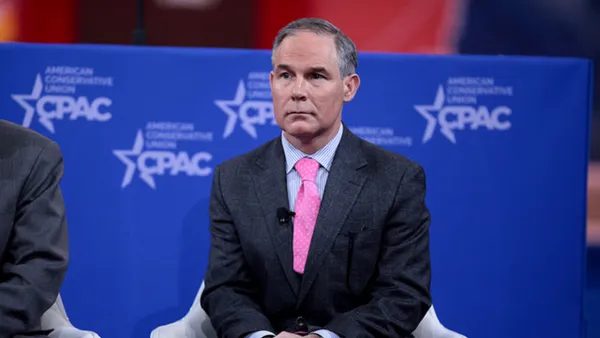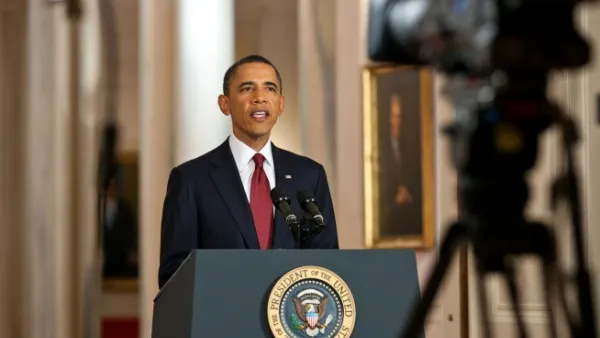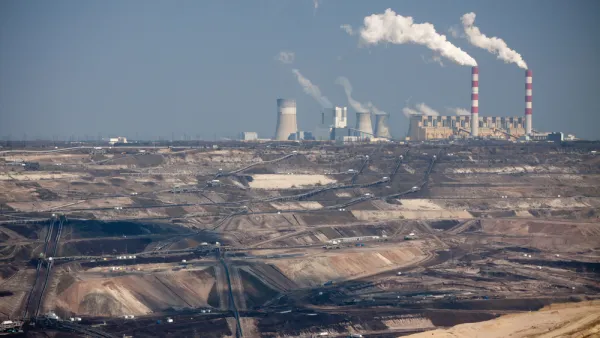Mark Landler reviews the recent efforts of the Obama administration to make headway on climate change through executive order, diplomacy and economic incentive.
The next chance the U.S. gets to save the day during global climate changed talks, as Obama did in Copenhagen in 2009, will be in France in 2015.
Mark Landler writes that climate change has taken a backseat in both domestic and foreign U.S. policy until recently, with Obama's speech at Georgetown University, announcing cuts in power plant emissions and reiterating the 17 percent reduction in greenhouse gas emissions by 2020; his California meeting with Xi Jinping of China, resulting in an agreement to reduce the use of hydroflourocarbons; and John Kerry's visit to India, calling for a reduction in emissions in the residential sector through measures like improved air conditioning and announcing a loan-guarantee program to fund the development of clean technologies.
China and India are the world's first and third largest carbon emitters. The U.S. is second and serves as a barometer for the emissions of the other two both in its policy and actual greenhouse effect.
Despite the previous lull and Europe and Australia's independent advances on the issue, during his speech at Georgetown, Obama reiterated that the world looks to the U.S. to lead on climate change, positioning himself to be an actor for change on this front, with Kerry at his side, whether through the U.N. or side deals.
FULL STORY: Obama seeks new US role on climate change

National Parks Layoffs Will Cause Communities to Lose Billions
Thousands of essential park workers were laid off this week, just before the busy spring break season.

Retro-silient?: America’s First “Eco-burb,” The Woodlands Turns 50
A master-planned community north of Houston offers lessons on green infrastructure and resilient design, but falls short of its founder’s lofty affordability and walkability goals.

Delivering for America Plan Will Downgrade Mail Service in at Least 49.5 Percent of Zip Codes
Republican and Democrat lawmakers criticize the plan for its disproportionate negative impact on rural communities.

Test News Post 1
This is a summary

Test News Headline 46
Test for the image on the front page.

Balancing Bombs and Butterflies: How the National Guard Protects a Rare Species
The National Guard at Fort Indiantown Gap uses GIS technology and land management strategies to balance military training with conservation efforts, ensuring the survival of the rare eastern regal fritillary butterfly.
Urban Design for Planners 1: Software Tools
This six-course series explores essential urban design concepts using open source software and equips planners with the tools they need to participate fully in the urban design process.
Planning for Universal Design
Learn the tools for implementing Universal Design in planning regulations.
EMC Planning Group, Inc.
Planetizen
Planetizen
Mpact (formerly Rail~Volution)
Great Falls Development Authority, Inc.
HUDs Office of Policy Development and Research
NYU Wagner Graduate School of Public Service





























